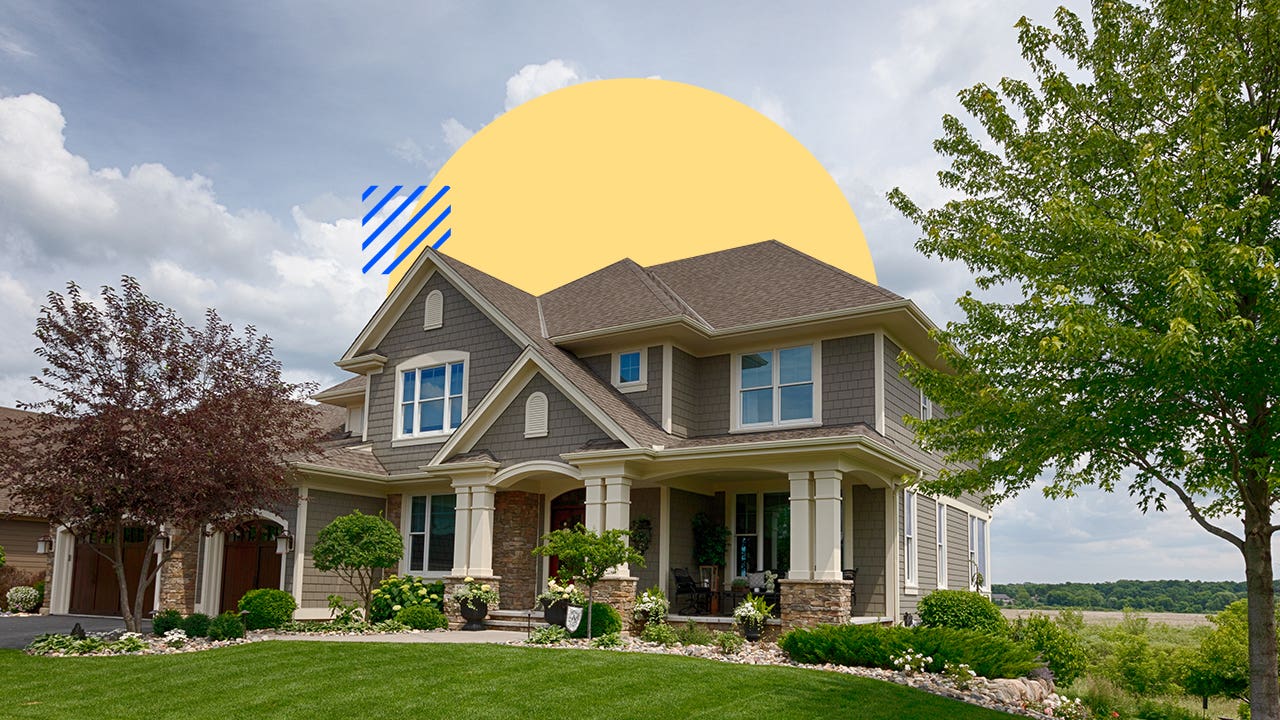How much do you need to make to afford a $500K house?

The housing market of the past few years has seen soaring home prices and mortgage rates that hit a 20-year high last fall. And while mortgage rates have come down from their historic highs, prices are still at record levels — the median home price in the U.S. as of August 2024 was $416,700, meaning half of the homes sold had an even higher price tag.
So how much do you need to make to buy a $500,000 house? Start by assuming you’ll spend about a third of your total income on housing (more on the 28 percent rule below). Bankrate’s mortgage calculator shows that for a $500,000 home purchase, assuming a 20 percent down payment and a 30-year mortgage loan at an interest rate of 6.5 percent, the monthly principal and interest payment will come to $2,528. Multiply that figure by 12 to come to an annual amount of $30,336. If that is a third of your earnings, multiply $30,336 by three to determine the minimum annual income you’ll need to afford a $500,000 home: $91,008.
Note that this total does not include property taxes, home insurance premiums or potential HOA fees, all of which vary depending on your location, nor does it include other monthly expenses or debts. So the salary needed to comfortably afford the payments without stretching yourself too thin will likely be more than $91K. Here’s more on how to determine if you can afford a $500,000 house.
Income needed to afford a $500,000 house
To figure out how expensive of a house you can afford, it helps to know how much of your income you should be spending on housing. One commonly used guideline is the 28/36 rule. This rule of thumb states that no more than 28 percent of your income should be spent on your housing payments, and no more than 36 percent should be spent on total debt (housing plus any student loans, credit card bills, car payments and more).
Keep in mind that the cost of homeownership involves much more than just the principal and interest on your mortgage loan. You’ll need to also pay homeowners insurance and property taxes, both of which can vary wildly depending on where you’re located. You will also need to cover maintenance costs. That means general upkeep of the property, as well as repairs as needed. And if your home is part of a homeowners association, there will be HOA fees to pay as well.
As you may have noticed, location matters a lot when it comes to home prices. According to August 2024 Redfin data, states with a median home sale price around $500,000 include Oregon ($512,500) and Connecticut ($460,400). Individual markets with medians close to $500,000 include Sacramento, California ($500,000 exactly), Austin, Texas ($547,500) and Olympia, Washington ($510,765).
What factors determine how much you can afford?
Buying a home is a complex process, and it makes sense that a variety of factors come into play. Here are some factors you’ll need to weigh to estimate how much house you can afford.
Debt-to-income ratio
Your debt-to-income ratio, or DTI, is the percentage of your monthly income that you spend on paying off debt. In general, the lower your DTI, the better: A DTI of 36 percent or less is what most mortgage lenders want to see. (This figure may look familiar from the 28/36 rule earlier.)
Here’s a DTI example. Using the calculations at the top of the page, your monthly income from a $91,008 salary comes to $7,584, and your monthly interest and principal payments on a $500,000 house come to $2,528. Bankrate’s DTI calculator shows that with $2,528 in monthly debt and $7,584 in monthly income, your DTI would be 33 percent — safely below the threshold of 36 percent. However, that does not leave much room leftover for other debt payments, so you’d have to be very careful with your other spending to maintain it.
Down payment
Another major consideration is your down payment. For a $500,000 house, a 20 percent down payment is $100,000 — a large amount to pay all at once, but the more you pay upfront the less you’ll have to borrow, and so the lower your monthly payments will be. You don’t necessarily have to put down a full 20 percent, but if you opt for less, you’ll likely have to pay an extra monthly fee for private mortgage insurance. Many mortgage products will allow a much lower down payment, but again, that will result in higher monthly mortgage bills.
Loan-to-value ratio
Your loan-to-value ratio is a measurement that compares the value of the property you’re buying with the amount you’re borrowing to pay for it. Think of it as an inverse to your down payment: If you put 20 percent down, your LTV is 80 percent. Generally, the lower your LTV, the better.
Credit score
Your credit score will have a big impact on your mortgage payment, because a higher score means you’ll likely qualify for a better rate. To qualify for most types of mortgages, you’ll need a credit score of at least 620. Some loan types, such as FHA loans, accept lower scores, but a higher score will almost always get you a lower interest rate. And that could save you a significant amount over your loan term.
Assistance options
If you’re a first-time homebuyer, you may qualify for a government down payment assistance program. These are available at the local, state and even federal level, and they typically provide financial help to cover some of your down payment and closing costs. Low-income borrowers are often eligible for homebuying assistance as well, but if you’re buying a $500,000 home, you probably won’t qualify for those types of programs.
Stay the course until you close
Buying a house involves a lot of moving parts. Even once you’re in contract on a home, it’s important to stay on top of your finances until the deal is done. Don’t make any big moves that could affect your credit score (like applying for a new credit card) or your income circumstances (like changing jobs) while the underwriting process is underway.
Working with a trusted real estate agent can make the entire homebuying process easier and less stressful. An agent will guide you through finding the right house, making the right offer and negotiating a contract, and then see you through to closing. Whether you’re buying a $500,000 house or a $5,000,000 house, an experienced agent can help you make the right decisions with confidence.
FAQs
Why we ask for feedback Your feedback helps us improve our content and services. It takes less than a minute to complete.
Your responses are anonymous and will only be used for improving our website.







